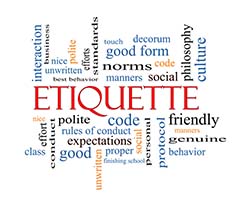Lord Moulton is a fascinating character. He was minister of munitions in Britain during World War I a member of Parliament and a jurist. His “middleground concept ” what holdssociety together is fascinating. If you haven’t read the other blogs, imagine that there is a pasture where you are free to roam around. On one end of the pasture there are things that you cannot do. On the other end of the Pasture there are things that you are free to do and the vast middle pasture ground are things you can do or not do that are based upon ritual, mutual conversation, mores, and a cohesion built in a society by shared values. It is things like rising for an Anthem, stopping for a funeral procession, taking care of a neighbors house when they are gone even if they didn’t ask, “women and children first, etc. Moulton calls these things simply “manners” but he also talks about obedience to the unenforceable.
Much of his discussion parallels what we’ve had in the church for years over the uses of the law. We have talked about a civil righteousness that does what the moral law demands even though it does not believe in God. I’ve heard comments that if the 10 Commandments and following them is the measure of a Christian, most pagans ought to be considered Christians. That is why the discussion of the difference between the Law and the Gospel must continue in the church until the end of days. What Moulton is talking about here is a relationship between people in a society and how they live together, and the government that either seeks to control them, or stays within the limits of it’s mandate as government. He wrote…..
Obedience to the Unenforceable measures the extent to which the nation trusts its citizens, and its existence and area testify to the way they behave in response to that trust. Mere obedience to Law does not measure the greatness of a Nation. It can easily be obtained by a strong executive, and most easily of all from a timorous people. Nor is the licence of behavior which so often accompanies the absence of Law, and which is miscalled Liberty, a proof of greatness. The true test is the extent to which the individuals composing the nation can be trusted to obey self-imposed law.


